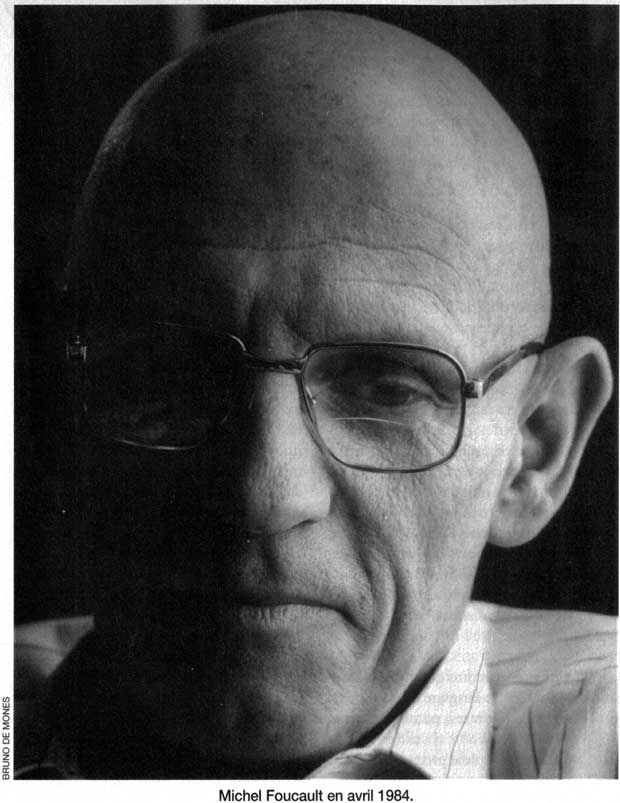An iconographic and text archive related to communication, technology and art.
What gives the meditation on death its particular value is not just that it anticipates what opinion generally represents as the greatest misfortune; it is not just that it enables one to convince oneself that death is not evil; rather, it offers the possibility of looking back, in advance so to speak, on one’s life. By considering oneself as at the point of death, one can judge the proper value of every action one is performing. Death, said Epictetus, takes the laborer while he is working, the sailor while sailing: “And what activity would you like to be engaged in when you are taken?” And Seneca envisages the moment of death as the moment when one will be able to become one’s own judge, as it were, and able to measure the moral progress one will have made up to one’s final day. In letter 26 he wrote: “On the moral progress I have been able to make in the course of my life, I trust only in death… I await the day when I will pass judgment on myself and know whether virtue was only in my words or really in my heart.”
☛ The Hermeneutics of the subject. Lectures at the Collège de France 1981-1982, tr. by Graham Burchell, New York: Palgrave MacMillan, [2001] 2005, pp. 504-505.
June 25, 2014 marks the 30th anniversary of Foucault’s death. The excerpt quoted above is the very last paragraph of the “Course Summary” produced by Michel Foucault for the Annuaire du Collège de France. It was first published in French in 1989, in Résumé des cours. 1970-1982, a collection of all the similar summaries he wrote for the Collège de France during that period (Paris: Julliard, see p. 165-166 for the excerpt quoted here). The same excerpt is of course included in L’herméneutique du sujet. Cours au Collège de France. 1981-1982 (Paris: Éditions du Seuil/Gallimard, 2001, see p. 485). The topic of the meditation on death was further developped by Foucault during the second hour of the 24th lecture, on March 24, 1982. The same quote I’m using here closes Didier Éribon’s excellent biography Michel Foucault (trans. Betsy Wing. Cambridge: Harvard University Press, 1991, pp. 331-332; in French Michel Foucault, 1926-1984, Paris:Flammarion, 1989, p. 355).
Michel Foucault gave his last lecture at the Collège de France on March 28, 1984 (on The Courage of the Truth). He died three months later, on June 25, 1984.
The French literary journal Le Magazine littéraire ran a special issue on Michel Foucault in May 1984, one month before his death. It contains a follow-up on The History of Sexuality project, a previously unpublished lecture (on Kant’s Was ist Aufklärung, from january 5th, 1983, later included in The Government of Self and Others), an interview, and many other essays (Ewald, Farge, Dreyfus & Rabinow, etc.). For the occasion, Le Magazine littéraire had asked Bruno de Monès to make portraits of Michel Foucault in his apartment on the Rue de Vaugirard, in Paris. A long-time collaborator of the publication, de Monès had and would photographed many of the most prominent French writers and intellectuals (see more of his portraits at the Roger Viollet agency). He produced a series of intimate images of Michel Foucault in April 1984. Some were published in the May 1984 issue of Le Magazine littéraire, others remained unpublished until they were used in a special issue commemorating the tenth anniversary of Foucault death. The photo below, dated from April 1984, appeared in this anniversary issue, on October 1994.

In the same anniversary issue is also featured this next photo, dated from May 1984. According to the journal’s captions, it is one of the last picture taken of Michel Foucault. The photo was taken by Michèle Bancilhon and is also part of a series: other images from the same photographic session can be found at the Portail Michel Foucault and on the website of Université Lille 3. Michèle Bancilhon is the same photographer who took the well-known series of black-and-white photos showing Foucault at his desk with a water carafe, while he was giving one of his lectures at the Collège de France, in 1974.

- By Philippe Theophanidis
- on
- ― Published in Art
- Tagged: death, ethic, Foucault, life, obituary, philosophy
